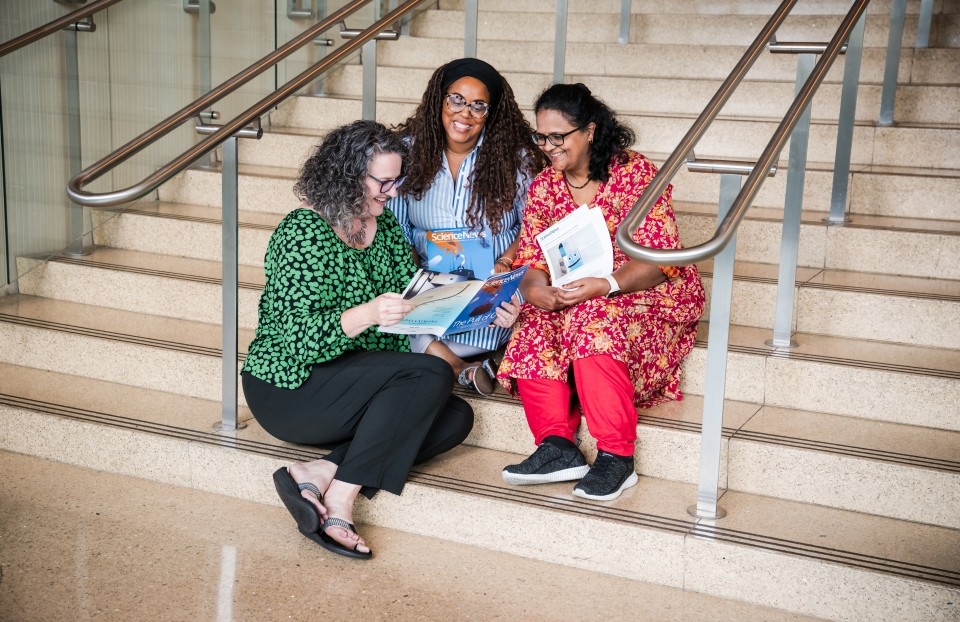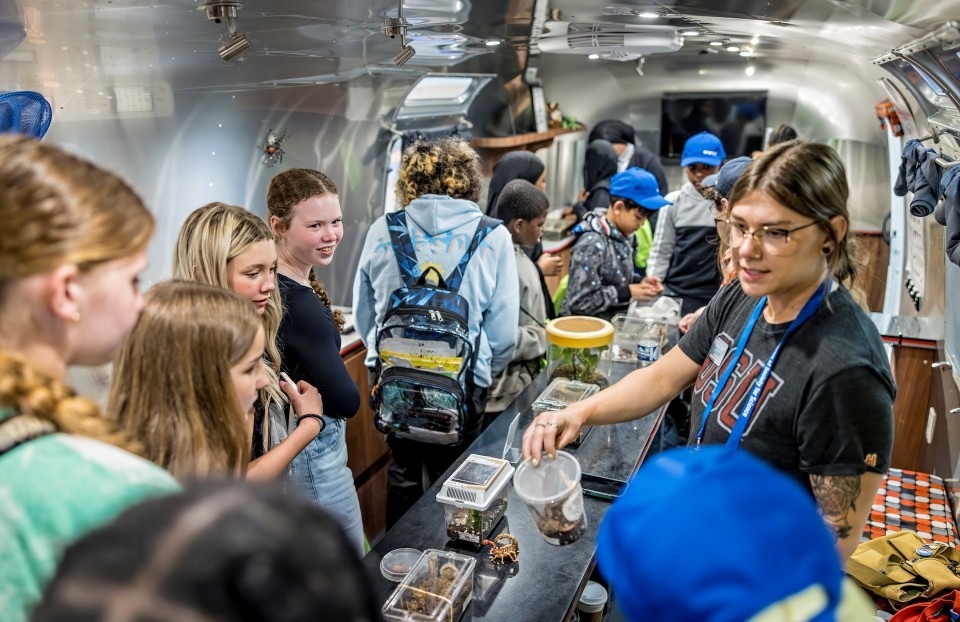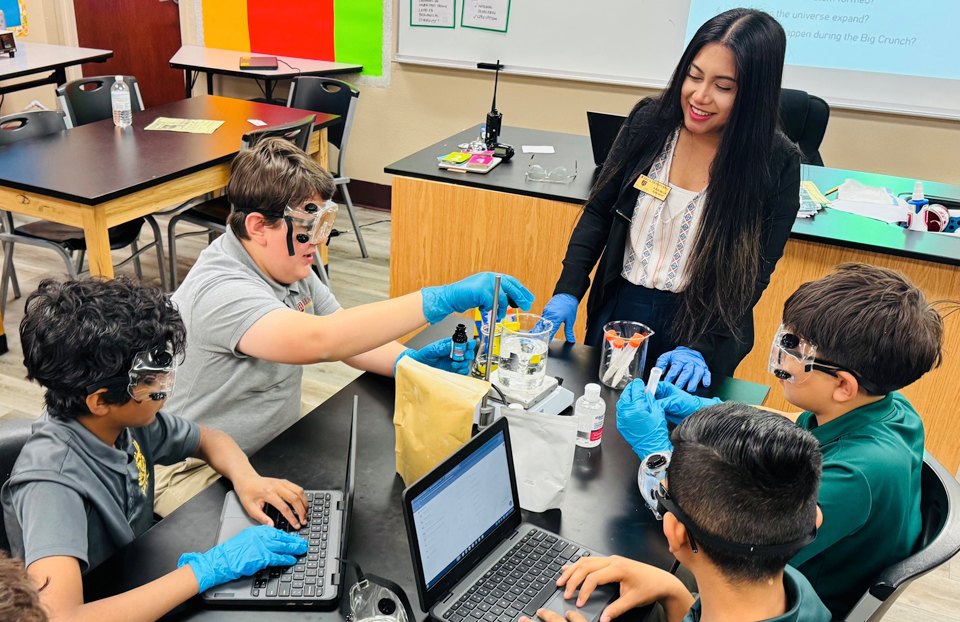Science News Learning, STEM Outreach
Science in Action: Regeneron scientists connect with students in Science News Learning classrooms
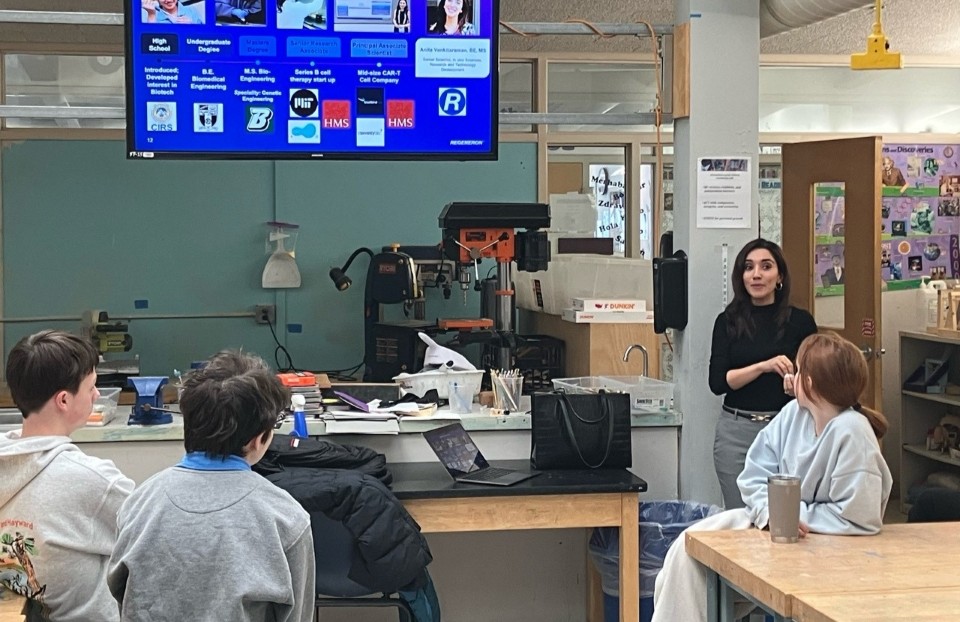
Science News Learning, a STEM outreach program of Society for Science, encourages science literacy and curiosity in middle and high school students across the country. Through this sponsored program, 6,000 schools receive access to Science News Media Group’s award-winning journalism, both digital and in print. Over 17,000 enrolled educators have access to professional development opportunities and hundreds of ready-to-use lesson plans, connecting the latest advancements in STEM with core curricular concepts.
In addition to sharing science journalism, the Science News Learning program is also opening doors for students to meet scientists conducting impactful, cutting-edge research. For the second year, Science News Learning has given students a chance to learn about research being done by Regeneron’s scientists. They have heard personal stories from them about how they got to where they are today.
As Ali McDowell, Senior Manager of Social Impact at Regeneron, shares, “This program has offered our colleagues a meaningful opportunity to inspire the next generation of scientific thinkers and future leaders, aligning with Regeneron’s commitment to advancing science education and creating opportunities for future innovators.” She adds, “We provide students the chance to witness science come alive as it transitions from the page to the classroom and, ultimately, to a career. This initiative reflects our dedication to making a lasting social impact and inspiring the next generation of scientists and leaders.”
In the 2024–2025 school year, 50 Regeneron scientists from Cambridge, Mass., Los Angeles, Calif., Rensselaer, N.Y., Seattle, Washington and Westchester, N.Y., visited 36 schools, sharing their work and personal journeys with more than 2,100 students through 62 interactive presentations.
During each visit, scientists explained how their work connects to what students are learning in class, led a discussion of a Science News or Science News Explores article covering their field, and highlighted how that knowledge could be further applied to STEM careers. They also talked about how they got started in science and what keeps them passionate about what they do. And of course, students asked many excellent questions!
The Science News Learning program is proud to connect students and teachers with opportunities to learn directly from professional scientists working at the forefront of their fields, and we are grateful to Regeneron for making these enriching visits possible.
Below are some highlights from the Regeneron scientist visits, as told by teachers and Regeneron scientists:
From the teachers:
“It was a great opportunity for my students to personally listen and talk to a great scientist. They were engaged and inspired by his journey of getting to where he is today. He was a passionate speaker and able to connect to the students easily. His talk extended to more than an hour because the students could not stop asking him questions!” – Mercia Dacono, Sylmar Biotech Health and Engineering Magnet (Los Angeles, Calif.)
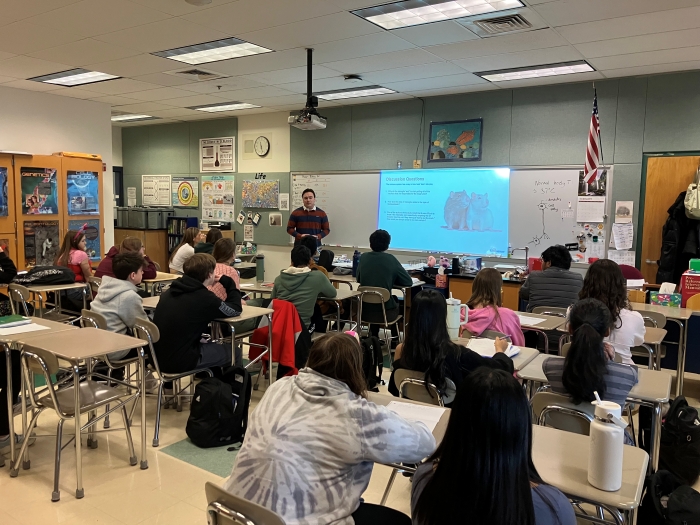
“My kids always think they need to know what they want to be when they are 18. Josh and Hannah let them know it was not at all the case! It was helpful for my students to hear the very different paths scientists take to get where they are.” – Heidi Gleason, Columbia High School (East Greenbush, N.Y.)
“Hearing about the scientists’ diverse pathways into their field helped my students. They also liked the fact that one of the scientists enjoyed science, but not math, and still found great success and joy in her career.” – Mark Healey, Pollard Middle School (Needham, Mass.)
“Many of the scientist’s research tools and techniques are the same that we study in our courses, so his discussion of how and when he has used them really brought our laboratory lessons to life.” – Jeanine Hall, Hendrick Hudson High School (Montrose, N.Y.)
“The scientists who visited our students were Hispanic/Latino so our students saw them as role models. Many students were inspired by their academic journey because they did not just focus on their successes but also mentioned trial and failure multiple times. This is such an important lesson for our students, and the scientists gave them a new perspective that failure is part of growth.” – Sarah Kim, Magnolia Academy 6 (Los Angeles, Calif.)
“Students said it was very interesting to hear from a physician-scientist working in industry. They took away the message that they should develop skills that can be helpful in any career path within science. Some who had previously only considered medical school and working with patients are now considering clinical research as a possible career path.” – Tracy LaGrassa, Bronx High School of Science (Bronx, N.Y)
“The visit has had a great impact. The speaker gave great advice on how to find a mentor and has even connected my students to opportunities in the New York City area. The kids won’t stop talking about her and have even asked follow-up questions via email.” – Sally Mitchell, Rye High School (Rye, N.Y.)
“My students gained appreciation for a field of science that they hadn’t previously been exposed to. The combination of computer science and biology really spoke to several of the students, along with the idea that a scientist doesn’t always have to be working at a lab bench to be doing science.” – Tim Renz, Foster High School (Tukwila, Wash.)
“One of my seniors who will be studying at Northeastern University next year had lots of questions and our visitors were willing to stay after and talk with him about his courses and what he will be studying. He was very excited to talk with them and possibly connect with them in the future as he begins to think about internships.” – Kerri Scott, Melrose High School (Melrose, Mass.)
“The scientist explained his college experience and how it prepared him for the job he has at Regeneron today. This experience greatly helped the students understand how they can use their time in high school to build up their skills for college and the field they would like to go into in the future.” – Elizabeth Stephens, Mahopac High School (Mahopac, N.Y.)
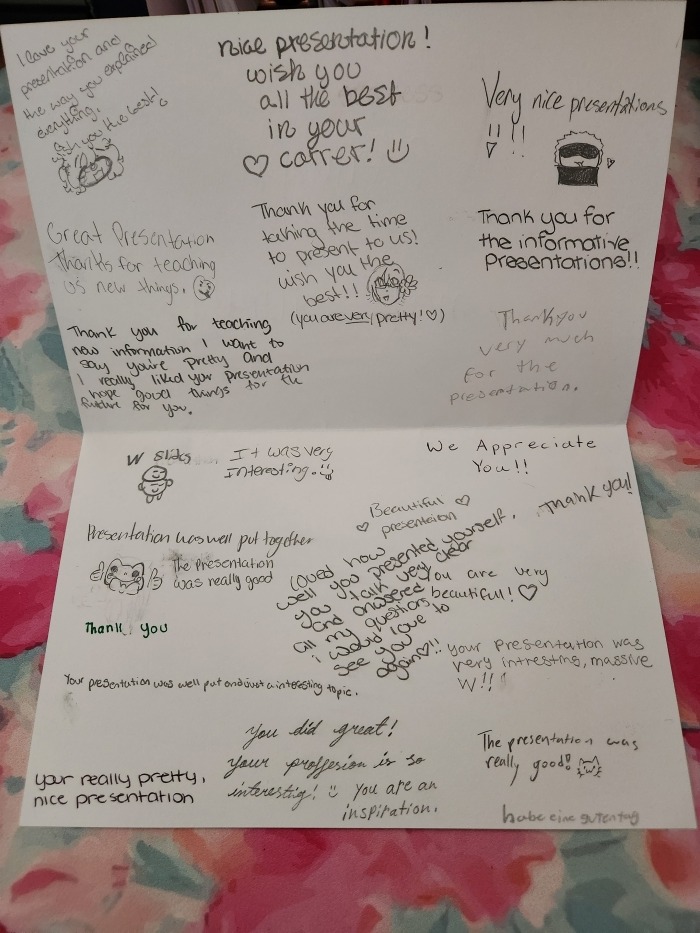
From the scientists:
“One of the most memorable moments from my school visit was when a young girl asked, ‘What do you like about your job?’ I told her that what keeps me going is knowing the drug we are developing could one day help someone, somewhere. Her eyes lit up as she listened, and I could see her processing the idea that a career in STEM isn’t just about formulas and experiments. It is about impact. That moment reminded me why I do what I do, and why it is so important to share that passion with the next generation.” – Kossiwa Amevor, Associate Biotech Production Specialist, Industrial Operations and Product Supply
“The class was energetic and had a lot of good questions about our backgrounds and jobs. STEM activities give me a way to give back to the community that has been so good to me, and a chance to hopefully inspire the next generation. If our conversations give even one young person some inspiration or guidance, it is extremely worthwhile to me.” – Pamela Krueger, Director, Research Pharmacokinetics, Therapeutic Proteins
“It’s incredibly satisfying to engage and encourage young scientists. The future of both academic and industry science depends on helping the next generation develop not only their research, but also their critical thinking and analysis skills as well.” – Jason Mastaitis, Ph.D., Sr. Principal Scientist, Obesity, Muscle and Metabolism
“My scientific career was heavily influenced by my ninth grade high school biology teacher, Robert Jester. I was honored to share my own journey with students at this early stage in their education and show them one of the many paths available to them in science.” – Jeremy Rabinowitz, Associate Director, VelociGene
“In the age of genetic medicines, generative artificial intelligence and the looming climate crisis, scientific literacy becomes more important with each passing year. By meeting with students, many of whom will not pursue careers in science, I hope to help them become educated, critically aware adults who will shape the coming world with wisdom and a sense of responsibility.” – Micah Rapp, Senior Scientist, Therapeutic Proteins
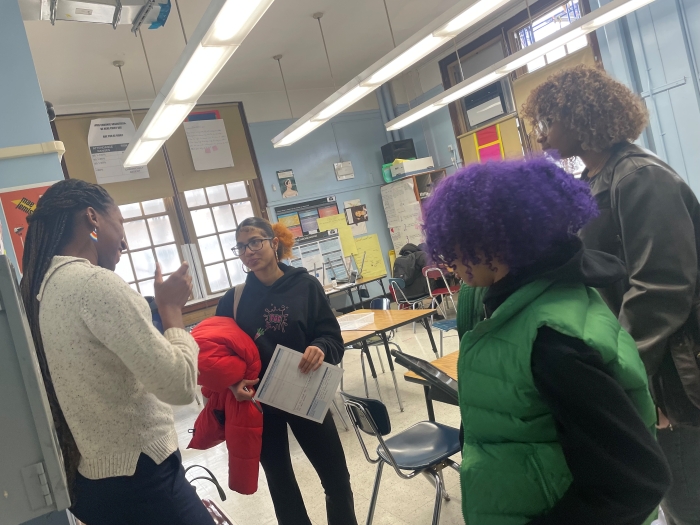
“Interacting with students interested in science lets me help support the ambitions of the next generation of scientists.” – Jason Simon, Director, Precision Medicine
“It’s so important to foster an interest in STEM from a young age! I wish that scientists and engineers would have come to my school to speak about their jobs and career journeys when I was in the sixth grade. I want to provide that opportunity for the next generation and to drive them to be inquisitive and interactive with the world that surrounds them.” – Alex Snyder, Associate Process Characterization & Technology Engineer, Process Sciences Labs, Industrial Operations and Product Supply
“Communicating with the next generation of potential scientists and engineers does so much for both our industry and my own morale. I love returning to what inspired me to enter this field and reminding myself that making science and engineering easy and fun to talk about is almost as important as doing it myself. It’s a special opportunity to be able to excite and inspire others to one day improve on our work. – Alexandra Tsoras, Principal Scientist, Cellular Process Development, Regeneron Cell Medicines
Learn more about Science News Learning here.
